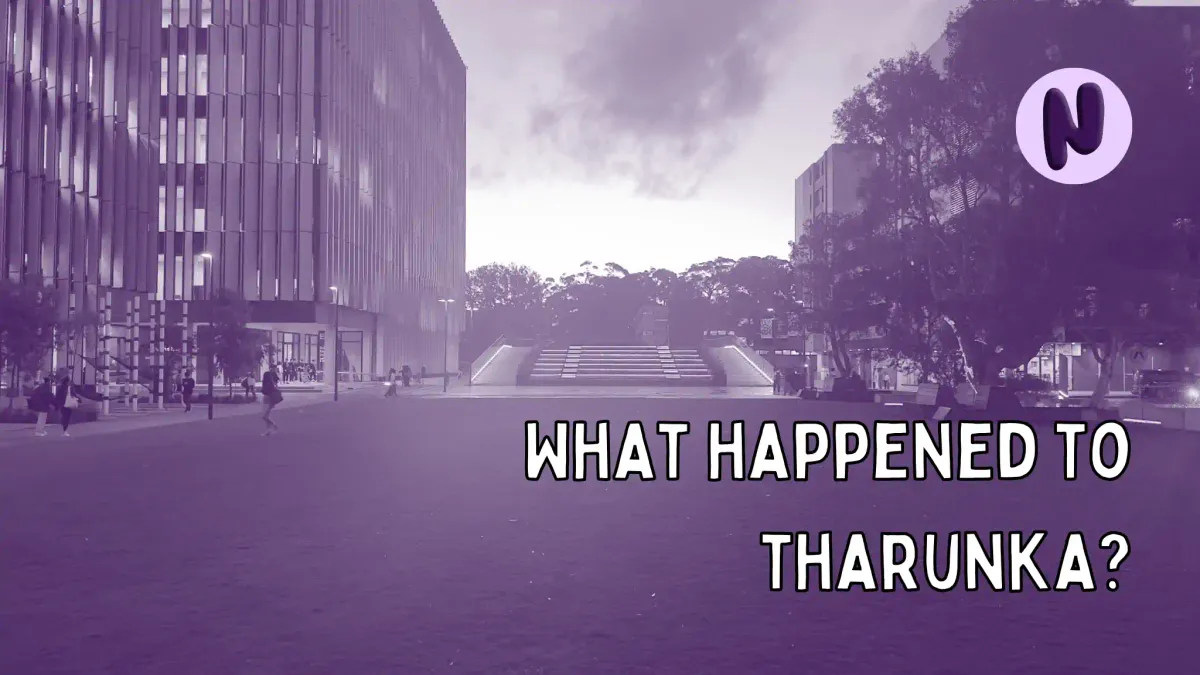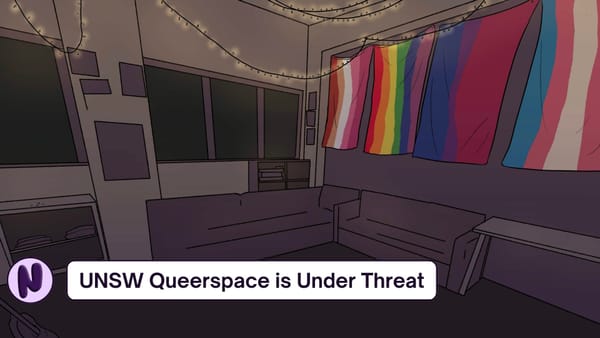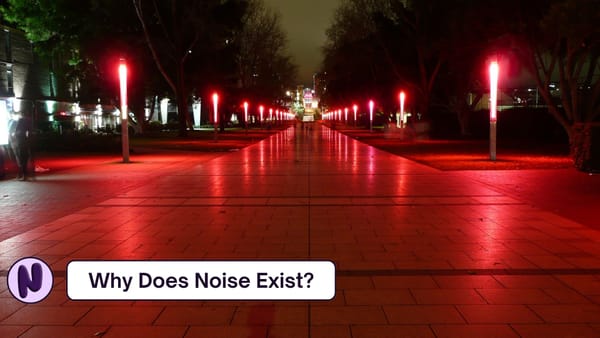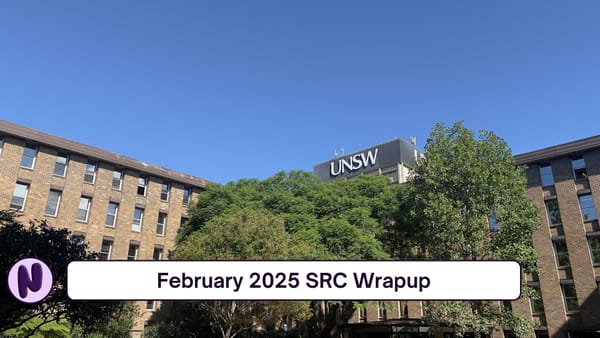What happened to Tharunka?
Tharunka has been the student’s newspaper at UNSW since 1953. Where did it go?

For over 70 years, the newspaper Tharunka has reported on the concerns and issues of UNSW students, societies, and the endless chaos of navigating the uni’s systems. In 2024, however, the paper disappeared from campus. The last print edition of 2023 sits in sealed boxes at Arc Reception unreleased, no articles have been posted on their website or socials since mid-December, and no new editors have been hired for this year. What happened?
The Official Story
According to the Arc website, the publication is “currently unavailable as [they] are changing [their] name”, citing one of the 2 major pieces reportedly included in the Term 3 print edition last year. That article explores the origins of the paper’s name, and explains why the name Tharunka, which purportedly meant “message-stick” (spoiler: it doesn’t), was either stolen, anglicised, or entirely made up, and calls on the 2024 editors to rename the paper.
The evidence presented in the article justifies a name change for the paper, and it’s not like Tharunka is the first to need one. In 2022, the University of Sydney Arts Students Society’s journal discovered evidence of similar issues with their own name, and updated it with no downtime in publication. If Arc really believed that the issue with the name was enough to stop publication, why are 750 copies of Term 3’s print edition currently sitting in Arc’s reception, and why can’t students get their hands on it?
“That edition was titled ‘Tharunka is Dead’ and had an article describing an on-campus sexual assault (and how UNSW failed to handle it) which is now published in Noise at the author’s request.
“My contract ended on November 30, and I was locked out of the Arc Sharepoint and Tharunka website. On December 1, I sent our two last articles for Arc to publish: Anh’s name change investigation, and that SA article. They published one, but not the other. It’s pretty clear to me that they thought they could get away with sweeping what was absolutely not a good look on UNSW, and rightly so, under the rug.”
“Honestly, spare me with the racism virtue signalling. You could use a temporary name - get ChatGPT to name it for all I care. You could expand Blitz to briefly absorb Tharunka’s duties. There are so many ways you could handle the name change that don’t involve depriving students of a platform to speak their mind.
“The reality is painfully simple: they’re sick of hard questions, and they’re scared of accountability.”
Dissent in the ranks
The last few years have seen a rise of tensions between the volunteer editors of Tharunka, and the Board members and marketing team at Arc. Honi Soit (the University of Sydney’s student paper) has numerous articles detailing Arc’s censorship of Tharunka, and the futile attempts of the editors to prevent it. Last year, Arc forced a two-month-long production pause, eventually shortened to a month, seemingly in retaliation to attempted coverage of events at the 2023 ARTSSoc first year camp (this article was never published, and all known copies have been deleted from the Arc Sharepoint). In the months prior, Arc Marketing informed the editors that all coverage of UNSW must be approved prior to posting and distribution, in addition to the excess of restrictions present in the Charter.
“‘ALL articles that explicitly reference PEOPLE will create a defamation risk for both the author and the publisher so in order to de-risk you should be seeking approval BEFORE publishing.’ That’s what they said. And they said it knowing how impractical it was, how much content we were putting out, and that it would slow us down.
“The wording is peak Arc: they implied that there was some theoretical article that made no mention of a human being and didn’t need approval. But how would you even do that?
“They told us the word ‘sexual’ was a defamation risk. Not stating or even suggesting that anything, good or bad, actually happened. Just the presence of the word in our content. And this was in reference to an Arc affiliate. They were worried that the word ‘sexual’ would get Arc sued by itself. That was the moment I said to myself, ‘ok, this has officially gotten ridiculous.’”
“A strong commitment to upholding the mission of Arc”
Tharunka’s charter is the document which defines how the paper is run, similar to a society's Constitution. It’s also, to put it bluntly, terrible. The Charter states that a single person in Arc Marketing has the absolute power to control Tharunka content, which is in direct conflict to their role of independently reporting on student issues. The quote above comes from the “Guidelines for Publication” in the charter, well before the line about voicing “political, social and cultural views and concerns of the students of UNSW”.
“At some point, someone decided it was more important for Tharunka to act in the interest of Arc than it was to act in the interest of the student community. Editors have been fighting that attitude ever since.”
An entire section (2.5) of their charter also lists things they can’t write, which (alongside the obvious “no defamatory or illegal content”) amounts to “don’t publish anything that makes Arc or UNSW look bad”. In the last 2 years, this has included coverage of abuse and sexual assault in clubs and societies (which Arc governs), and coverage of the Arc Board and SRC Elections (which, unsurprisingly, Arc also governs).
Arc’s refusal to publish anything critical of itself or UNSW in Tharunka, while claiming that it “isn't afraid to make enemies in its quest for honesty”, gives us a strong hint of what their actual justification is.
So... what actually happened to Tharunka?
“Arc is undergoing a review of the Tharunka charter to consider a model which is more sustainable for Arc, Tharunka, and reflective of the ever-changing nature of student experience.”
That was the Board’s response when Honi Soit asked what happened to Tharunka. No comment was provided as to whether previous editors, non-Board student representatives, or any other students are being involved in the process. A similar statement is now present on their social media pages, and in the old Tharunka Contributors Facebook group.
This review, which began in July 2023, is yet to bear results. That month, Tharunka’s Editors presented an overhaul of the approvals process to a subcommittee of the Arc Board, but nothing has come of it, aside from changes amounting to little more than grammatical fixes. The meat of their proposal was again shoved to the side, and no further changes have been made since August.
“Over time, the delay tactics became clear and, I hate to say it, but they worked. If I knew then what I know now, I would have lost faith in the company far quicker, and would have resigned in protest halfway through the year.
“It was like, every time I thought to myself, ‘I might actually be able to work with these people’, they pulled some other bullshit excuse as to why their unethical practices should continue.”
As such, we are led to the conclusion that Tharunka’s silence is the end goal of Arc’s repeated attempts to suppress and silence independent student journalism, the end of a years-long battle to cover up the flaws of itself and the university.
If Tharunka does return in Term 2 like Arc claims, it will likely be under even heavier restrictions on publishing, similar to Blitz or UNSWeetened. We will be closely following the actions of the Arc Board to see if they make the ethical decision, or continue to fight against transparency and independent journalism.




